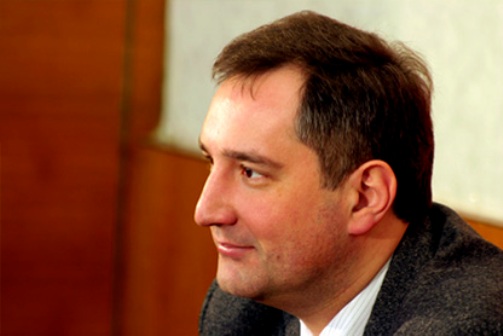Please also visit : KATAKAMI.BLOGSPOT.COM
November 16, 2010 --- EURONEWS spoke to Russia’s permanent representative at NATO, Dmitry Rogozin in Brussels ahead of the NATO-Russia summit on Friday in Lisbon.
Euronews : Mr. Rogozin, what are you expecting Russia to bring to the Lisbon summit? Do you think the conditions now exist for closer co-operation between NATO and Russia?
“We are particularly hoping for the heads of the 29 member states in the NATO-Russia council to send a strong signal to their publics that the post cold-war climate has changed, and that Russia and NATO are now real partners.”
Euronews : What could that signal be?
“Above all it is honest talks on the questions where we share common positions, and those where we disagree. I think there’ll be three big questions in Lisbon. The first is the content of NATO’s new strategy.
The second is, well, we are looking for serious debate on missiles, on the risks, and on siting anti-missile defences in Europe. NATO Secretary General Anders Fogh Rasmussen has taken the initiative to invite Russia into this debate. The third is a debate on Afghanistan. It’s a common problem. Afghanistan represents a security threat, and the Russian Federation makes a serious contribution alongside NATO nations to help the Afghan people gain greater autonomy, acquire more skills, and thus become a more stable nation, and help stabilise an entire region.”
Euronews : In the past Moscow has been firmly opposed to NATO membership for Ukraine and Georgia. Has this position changed, and if yes, under what conditions?
“Russia is formally opposed to any fresh eastward expansion of NATO. We do not want any foreign military infrastructure next to our borders. But the paradox is it’s not just Russia who is opposed to this. Ukraine doesn’t want to join NATO, while in the case of Georgia two and a half years ago NATO encouraged Georgia to take two completely mad military actions against two independent peoples, those of South Osettia and, even worse, the assassination of Russian UN troops.
I think this episode closed the question of Georgia’s NATO membership for a very long time to come. Of course, NATO keeps bringing it up, saying the door is open for both Georgia and Ukraine, but in fact anyone in the west paying serious attention to the subject knows their membership is further away than three years ago.”
Euronews : Europeans and Americans, when they talk about setting up an anti-missile shield in Europe, are convinced the danger will come form Iran. Does Moscow see the threat coming from there?
“In general we don’t like to point the finger at any nation and call it evil while maintaining we’re the good guys. It’s unfair. We don’t think military methods or threats can solve any problem. Iran has a democratic form of government, with real elections, so it’s not a tyrannical dictatorship.”
Euronews : How could Russia and NATO co-operate in the missile shield?
“I don’t want to second-guess what the Russian president will say in Lisbon. I think he’s ready for some serious talks on the nature of the global threat, we are completing our analysis before going to Lisbon. He is ready to suggest some interesting new ideas and Russian initiatives, and I think on this level the summit will be very constructive.”
Euronews : NATO is still committed in Afghanistan. Is Russia going to participate, either directly or by ensuring a supply role?
“In Soviet times Russia was in Afghanistan, fighting a war, and we got sick of it. I think that soon NATO will be sick of it, too.”
(*)

